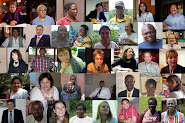 On a winter morning, a young photojournalist named Anshu Gupta was making the rounds of Delhi in search of news when he saw a rickshaw with an unusual sign stating “We collect bodies for the government.” Intrigued he approached the driver and learned that he picked-up bodies found on the streets of the city for a small fee. The winter months resulted in a spike in the number of deaths from people who lacked adequate clothing and shelter, so much so that the driver couldn’t keep up. The insight led to Anshu creating an NGO named Goonj and a system to channel surplus used clothing from the rich in the cities to the poor. The Goonj network now operates in half of all India to distribute something abundant in one area and desperately needed in another. The poor receive the clothes not as charity but an affordable price or in exchange for work, creating dignity and sustainability.
On a winter morning, a young photojournalist named Anshu Gupta was making the rounds of Delhi in search of news when he saw a rickshaw with an unusual sign stating “We collect bodies for the government.” Intrigued he approached the driver and learned that he picked-up bodies found on the streets of the city for a small fee. The winter months resulted in a spike in the number of deaths from people who lacked adequate clothing and shelter, so much so that the driver couldn’t keep up. The insight led to Anshu creating an NGO named Goonj and a system to channel surplus used clothing from the rich in the cities to the poor. The Goonj network now operates in half of all India to distribute something abundant in one area and desperately needed in another. The poor receive the clothes not as charity but an affordable price or in exchange for work, creating dignity and sustainability.Anshu’s story was one of many we heard at the XLRI Social Entrepreneurship Conference in Jamshedpur, India. Among the dozens of inspiring accounts, there were those of Pradip Sarmah who created a model to enable rickshaw drivers to own their vehicles, Chetna Gala Sinha who created a b-school for rural entrepreneurs, and Rajiv Khandelwal who created a bureau for providing migrant workers with services. In each case the social entrepreneur developed a model to bring essential services and empowerment to a population that had been exploited or ignored by corporations or the government. The innovations created were often strikingly simple yet scaleable.
Social entrepreneurship is a wave that is transforming the social sector. Social entrepreneurs create solutions to address critical needs unaddressed by government or business. In contrast to many nonprofits and social service agencies, social entrepreneurs bring an innovative approach that leverages the resources and talents of the poor and often use business-like approaches – even for-profit models – to create sustainable solutions.
So what makes a social entrepreneur? A CCL team had attended the XLRI conference to gather feedback on a competency model we had developed for the Acumen Fund Fellows. In the stories of the entrepreneurs and a dialogue we facilitated with participants, we heard and saw:
- an uncompromising commitment to the poor but an orientation that bypasses charity for business models
- a genius for seeing needs and solving problems
- a willingness to take a personal stand and stand-up new solutions
- a measure of empathy and humility matched by courage and perseverance
Can social entrepreneurs be made? The world clearly needs many more social entrepreneurs and many educational institutions – from Duke University and Stanford in the US to Oxford University in the UK to TISS and XLRI in India – are working to nurture a new crop of social change agents. At the conference we saw no shortage of passion from talented young people wanting to make a difference for the poor and disadvantaged. As a development organization, we believe that skills can be acquired and honed when there is a commitment to learn and grow.
Our efforts indicate that in addition to learning the hard business skills, a necessary sphere of development is building the soft skills that underlie a social entrepreneur’s success – self-awareness, empathy, resilience, creativity, influence, an action-orientation, and the ability to build relationships. The Center is working to create a curriculum that can help develop these essential competencies. The social entrepreneurs we have met have invariably gone through a profound internal transformation that fueled the social transformations they have created in the world. Bringing change into the world requires that we begin with ourselves. As Gandhi said, we must become the change we want to see in the world.



















